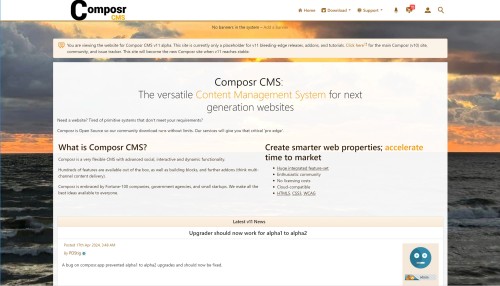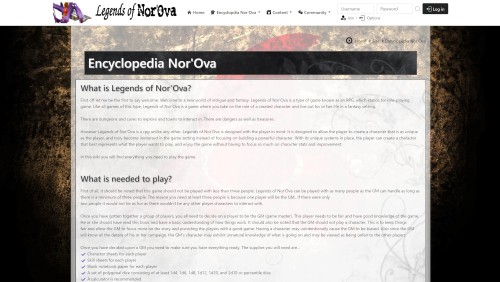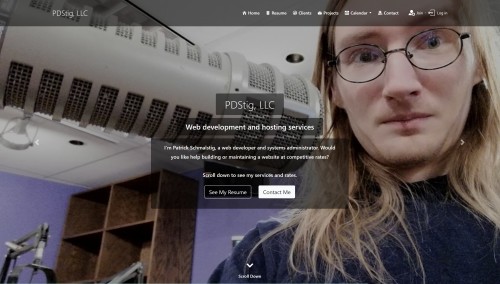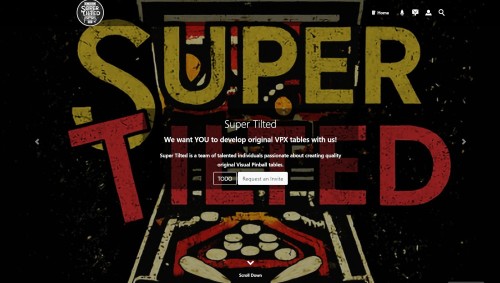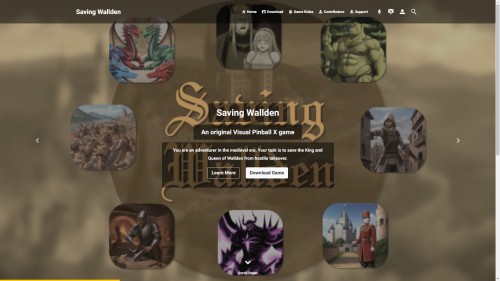Featured Sites: A-Z Index
H
Newest 10 Entries
| Question | How do I report an emergency problem with my Composr site? |
|---|---|
| Answer | Emergency problems are events that have significantly and suddenly affected your website's functionality due to legitimate bugs or undocumented usability issues. To report these:
|
| Question | How can I get support for Composr? |
|---|---|
| Answer | The community forum is an excellent resource for support. Users can help each other out with various problems. However, please remember that there's no guarantee of free professional support. If you need immediate or guaranteed assistance, consider hiring a professional developer. |
| Question | I'm getting a lot of spam on my site. What can I do? |
|---|---|
| Answer | Composr offers various anti-spam measures. Refer to the Anti-spam settings tutorial for advice on configuring these settings. If you believe there's an issue with the anti-spam system itself, report it to the issue tracker. Do not report general spam incidents. |
| Question | My website is experiencing performance issues. What should I do? |
|---|---|
| Answer | If you are experiencing performance issues, first identify the specific problem with your web host's help. Composr provides tools to manage database size, bandwidth, and disk I/O. However, high request volume or CPU usage may require server upgrades like a VPS or dedicated server. If your web host complains about resource usage, gather detailed information from them, including specific URLs causing problems and resource usage metrics. If their limits are unreasonable, consider switching web hosts. |
| Question | How do I report a security problem? |
|---|---|
| Answer | Security problems must be reported privately. You can do this by marking the issue as 'Private' on the issue tracker (if you use the Report Issue Wizard, it will do that automatically when you select security-hole). Publicly disclosing security holes is irresponsible and may result in penalties. The core developer team will disclose the issue after a patch is released. |
| Question | How do I report a bug in Composr? |
|---|---|
| Answer | Every bug, no matter how small, should be reported. You can report bugs using the Report Issue Wizard or directly through the issue tracker. There is also a link to report bugs on your Admin Zone Dashboard where the version information is located. And when clicking that link, you can view open issues specific to your version of Composr. When reporting a bug, be sure to:
|
| Question | What is the role of robots.txt in SEO? |
|---|---|
| Answer | The robots.txt file provides instructions to search engine crawlers about which parts of your website they should and should not access. You can customize the robots.txt file to prevent sensitive content from being indexed or to guide crawlers toward the most important areas of your site. |
| Question | What is SEO and why is it important for my Composr website? |
|---|---|
| Answer | SEO is the practice of optimizing your website to rank higher in search engine results pages (SERPs). By improving your SEO, you increase the visibility of your website, driving more organic (non-paid) traffic to your content. |
| Question | How can I edit the metadata in Composr? |
|---|---|
| Answer | Composr provides several ways to customize your metadata:
|
| Question | Should I trust agencies that promise top search engine results? |
|---|---|
| Answer | No; be wary of agencies guaranteeing top rankings for any desired keyword. Achieving top results for competitive terms requires significant effort, expertise, and often, an ongoing strategy. Focus on agencies that prioritize ethical "white-hat" SEO techniques like creating valuable content, optimizing website structure, and building natural backlinks. Avoid those employing "black-hat" methods that can lead to penalties from search engines. |
Top 10 Entries
| Question | What are "breadcrumbs," and how can I customize them? |
|---|---|
| Answer | Breadcrumbs are a navigation aid that shows the user their current location within the website's hierarchy. In Composr, breadcrumbs are customizable through an XML file. You can override default breadcrumbs using "match-keys" to target specific pages and define the desired breadcrumb structure. This allows you to adjust the breadcrumb trail to better match your website's organization. To edit, go to Admin Zone > Structure > Configure breadcrumb overrides. |
| Question | How can I control which panels are displayed on specific pages? |
|---|---|
| Answer | Panels are the areas around your main content area where you can place menus, blocks, and other dynamic elements. You can control panel visibility using display rules within your panel's Comcode: {+START,IF,{$NEQ,{$PAGE},example_page_1,example_page_2,example_page_3}} ... panel content ... {+END} This example prevents the panel from showing on pages named "example_page_1," "example_page_2," and "example_page_3." |
| Question | What is a "page-link," and how does it differ from a URL? |
|---|---|
| Answer | A page-link is a Composr-specific way to reference a page or screen within your website. It's a simplified, local representation of a URL, independent of the URL scheme you might be using. For example, the page-link site:downloads:browse:10 points to the download category with ID 10 in the site zone. This page-link remains consistent even if your URL scheme changes the way URLs are structured. Page-links also do not consider monikers, so if a URL moniker changes, page-links will stay the same. This is a powerful feature as you can use the Comcode [page="page-link"]Page title[/page] tag to generate URLs of local content. And these will always work regardless of URL scheme or moniker. |
| Question | How do menus work in Composr, and can I customize them? |
|---|---|
| Answer | Composr has a flexible menu system that can be customized to your needs.
Menus can be added to panels (sidebars, headers, footers) or embedded directly within Comcode pages. The menu editor provides tools for adding branches, setting captions, tooltips, and URLs, and even defining context-sensitive behavior using "match-keys." |
| Question | What are "zones" in Composr, and what are they used for? |
|---|---|
| Answer | Zones are like sub-sites within your Composr website. They provide a way to organize content and apply different settings, like permissions, themes, and navigation. Some default zones include:
|
| Question | What are the different ways to control access in Composr? |
|---|---|
| Answer | Composr offers a robust permission system with various methods for controlling access:
|
| Question | What happens when I add a new usergroup to a third-party forum integrated with Composr? |
|---|---|
| Answer | If you are not using Conversr as your forum, Composr won't automatically assign any permissions to the new usergroup. To rectify this, you can use the "Absorb usergroup-permissions" feature in the Admin Zone. This tool allows you to copy the permissions from an existing usergroup to the newly created one, ensuring consistent access and functionality. |
| Question | What are some security considerations regarding super-moderators and super-administrators? |
|---|---|
| Answer | While super-moderators have extensive access to manage your site, certain sensitive privileges are reserved for super-administrators. This includes the ability to impersonate other users, execute arbitrary code, and view private content. These restrictions help prevent potential privilege escalation and ensure the overall security of your website. Exercise caution when granting super-moderator status and trust only reliable individuals. |
| Question | What are some useful tools for debugging permission issues? |
|---|---|
| Answer | Composr provides a couple of tools to help pinpoint permission problems:
|
| Question | How can I test if my permission settings are working correctly? |
|---|---|
| Answer | Composr's "SU" feature allows administrators to temporarily assume the identity of another user, enabling you to experience the site as they would. Simply enter the desired username in the "SU" box in the footer. You can also use "Guest" to browse as an unauthenticated visitor. Remember that using "SU" doesn't accurately reflect online status and retains administrator access to sensitive areas. |


